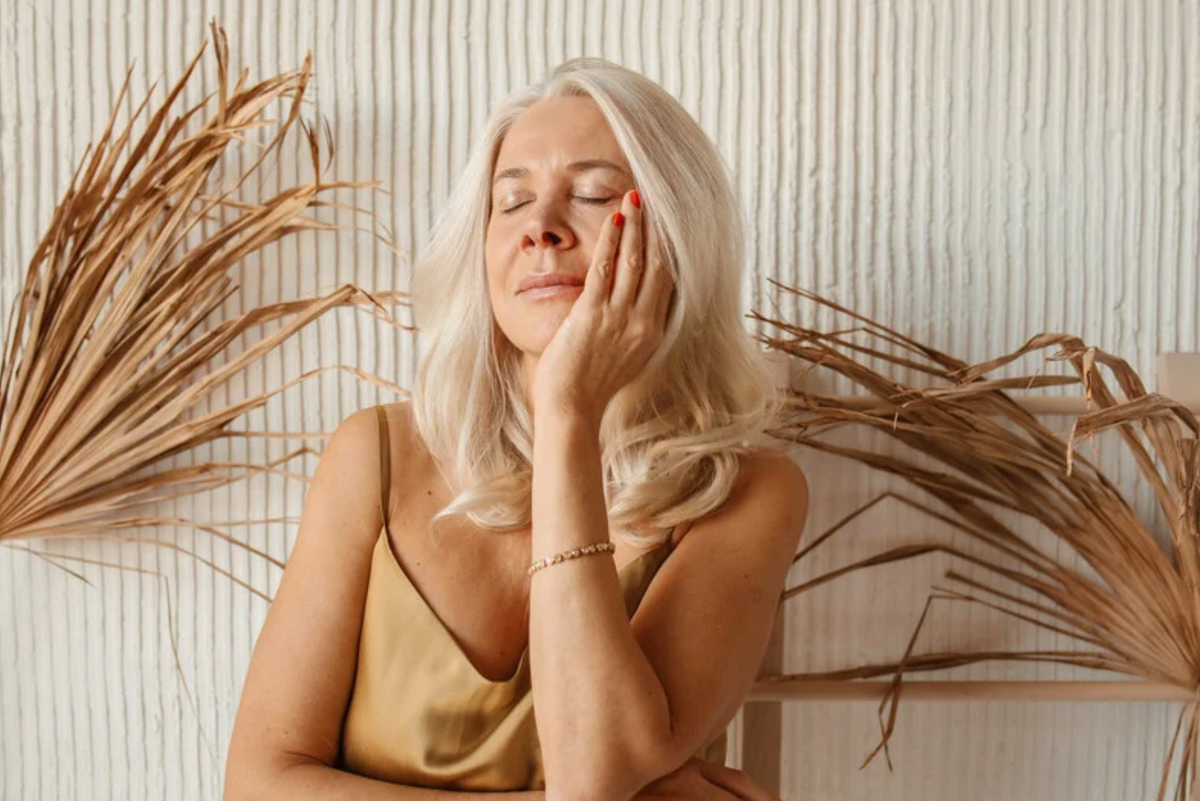Turns out, there are pros and cons whether you wash off the day or night.
We've Answered the Morning vs. Night Shower Debate

Lesley Chen is a California native who writes about travel, health/fitness, and other lifestyle topics. She has a serious case of RBF and exercises mainly to balance out an aggressive candy addiction.
Olivia Taylor (she/her) is a writer, self-proclaimed reality TV buff and uses "Real Housewives" references unironically. Her camera roll is filled with Twitter screenshots and she will definitely talk your ear off for as long as you will let her. Find more of her pop culture ramblings just about anywhere on the internet.
There are a lot of hotly contested questions in life: Do you hang your toilet paper roll over or under? Is a hot dog a sandwich? Is GIF pronounce “Gif” with a hard G or “Jif” like the peanut butter? Is The Dress actually white and gold or black and blue? (It's totally black and blue, BTW.) And finally, is it better to shower in the morning or at night? Well, researchers may have a scientific answer to the shower debate, and let’s just say…it’s complicated.
Team Night Shower
According to many studies, taking a warm bath before bed can help you sleep better. While the past research has mainly been around warm baths, it’s likely that a warm shower would have a similar effect. (And if you’re constantly taking cold showers, we don’t understand your life.) The connection between sleep and showers has to do with body temperature, which helps regulate your circadian rhythm. Your body temperature is highest in the morning and afternoon, when you’re likely to feel the most awake. As your body temperature drops in the evening, you start to feel sleepy. The evening warm shower may sound counterintuitive, but according to Christopher Winter, MD, a fellow at the American Academy of Sleep Medicine and medical director at the sleep center at Martha Jefferson Hospital, the shower does initially raise your body temperature. However, after you get out of the shower, your body temperature decreases, signaling it’s time to go to sleep (or at least making it easier to fall asleep). The optimal time to shower is 60-90 minutes before bed so your body has enough time to cool down (and dry off — no one likes a wet pillow). And we all know the restorative benefits of good sleep on your mind and body — you’re less likely to be cranky, stressed out, or mindlessly overeat.
Showering at night also ensures you wash your face before bed, which is essential to maintaining healthy skin. Your skin is exposed daily to various bacteria and free radicals, and making time to wash off your makeup, moisturizer, and the general grime of everyday life helps reduce breakouts and wrinkles.
Team Morning Shower
Morning showerers, don’t fret — there are advantages to an a.m. rinse as well. According to Shelley Carson, PhD, a psychology lecturer at Harvard University, taking a shower can help spark creativity. Anecdotal evidence has shown that creative discoveries occur after a period of incubation, or when original conscious thought is followed by a period without “task-related conscious thought” (AKA resting your mind and letting some thoughts stew in your head until they fully form into ideas). If you have a pressing problem that needs an out-of-box solution, putting that problem in the back of your brain and distracting yourself for a short period can actually help you solve it. A shower is a great place to let your mind wander because it’s where you are both alert and relaxed. Water tends to have a calming effect, removing external stimulation and giving you headspace to have that Aha moment, and in the morning is when your mind is most likely to be ready to tackle the day ahead.
Also, if you’re a clumsy shaver, morning showers are your best bet, as you have a surge of platelets (the cells that bind together to make blood clots) early in the day. If you do happen to accidentally nick yourself, you’ll stop bleeding more quickly.
The Verdict
So the answer to when the best time to shower is… it depends on your goals.
If you tend to have trouble catching zzz’s, a nighttime shower may help you drift off to slumberland. If you need to do some creative problem solving, try a morning shower to help ideas bubble to the surface. Oh, and if you religiously take a 5 a.m. hot yoga class, please (for all of our sakes) do not wait until nighttime to shower. Honestly, as long as you are regularly dedicated to good personal hygiene, shower whatever time of day works best for you.
Are you a morning or night shower person? Let us know in the comments below.
Stay updated on all of the latest health, wellness and beauty trends with Brit + Co!
This story was originally posted on June 28, 2017 and has been updated with additional reporting.
Photo Courtesy of Polina Tankilevich / Canva


















